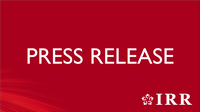
“South Africa now pays grants to more than 46% of the population.” This line in Finance Minister Enoch Godongwana’s 2022 Budget speech perfectly encapsulates the situation into which the ruling party’s ideological and policy choices have forced South Africa.
The 2022 Budget confirmed the weak state of South Africa’s economy. Treasury forecasts an average GPD growth rate of 1.8% over the next three years. This falls far short of the levels required to address an unemployment rate exceeding 46%. The country will fall further behind its emerging-market peers and competitors.
Policies such as expropriation without compensation, the National Health Insurance, expanded race-based labour legislation (in the form of the Employment Equity Amendment Bill), and Localisation Master Plans, will not save South Africa. On the contrary, they will make things worse.
The respite offered by a commodities boom is temporary. And the benefits from said boom would have been higher had the government’s Transnet monopoly and hostile legislation not inhibited the country’s export and trade potential for many years now.
The government’s debt-to-GDP ratio is expected to peak at 75.1% in 2024/2025. Servicing this debt will pull government spending away from services. Debt service costs now sit at R301.8 billion; this is larger than the entire budget allocation for health.
IRR CEO John Endres said: “The fiscal squeeze is on. The finance minister finds himself in the difficult position of having to reduce deficits in an environment where both cutting expenditure and raising revenue are well-nigh impossible. The only way out is through strong economic growth, but this path is blocked by policies that preclude it.”
The finance minister warned that tax hikes would be considered if government expenditure increased over the coming years. This is likely to happen, given the consistent pressure that its trade union partners in the Tripartite Alliance place on the ruling ANC.
As long as the country fails to embrace radical, pro-growth ideological and policy changes, we can expect more populist and short-term measures to remain on the table, such as a Basic Income Grant and prescribed assets. South Africa has drifted into a treacherous current, and is only just managing to keep its head above water – without a brisk change of stroke, the country risks being swept further into peril.
Media contacts: Gabriel Crouse, IRR Head of Campaigns – 082 510 0360; gabriel@irr.org.za
Chris Hattingh, IRR Deputy Head of Campaigns – 083 600 8688; chris@irr.org.za
Media enquiries: Michael Morris Tel: 066 302 1968 Email: michael@irr.org.za
 LETTER | Rethinking BEE premiums could unlock billions for growth - Business Day
Feb 19, 2026
LETTER | Rethinking BEE premiums could unlock billions for growth - Business Day
Feb 19, 2026
 IRR’s 2026 Budget tips for Minister Godongwana
Feb 19, 2026
IRR’s 2026 Budget tips for Minister Godongwana
Feb 19, 2026
 Corruption-busting must begin with next week’s Budget – IRR
Feb 18, 2026
Corruption-busting must begin with next week’s Budget – IRR
Feb 18, 2026
 Hold Ramaphosa to account for his SONA admissions of failure, IRR urges MPs
Feb 17, 2026
Hold Ramaphosa to account for his SONA admissions of failure, IRR urges MPs
Feb 17, 2026
 Corrigan pt. II: FMD crisis — How did we get to this point? - Biznews
Feb 16, 2026
Corrigan pt. II: FMD crisis — How did we get to this point? - Biznews
Feb 16, 2026

 LETTER | Rethinking BEE premiums could unlock billions for growth - Business Day
Feb 19, 2026
LETTER | Rethinking BEE premiums could unlock billions for growth - Business Day
Feb 19, 2026
 IRR’s 2026 Budget tips for Minister Godongwana
Feb 19, 2026
IRR’s 2026 Budget tips for Minister Godongwana
Feb 19, 2026
 Corruption-busting must begin with next week’s Budget – IRR
Feb 18, 2026
Corruption-busting must begin with next week’s Budget – IRR
Feb 18, 2026
 Hold Ramaphosa to account for his SONA admissions of failure, IRR urges MPs
Feb 17, 2026
Hold Ramaphosa to account for his SONA admissions of failure, IRR urges MPs
Feb 17, 2026
 Corrigan pt. II: FMD crisis — How did we get to this point? - Biznews
Feb 16, 2026
Corrigan pt. II: FMD crisis — How did we get to this point? - Biznews
Feb 16, 2026